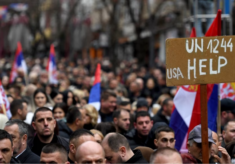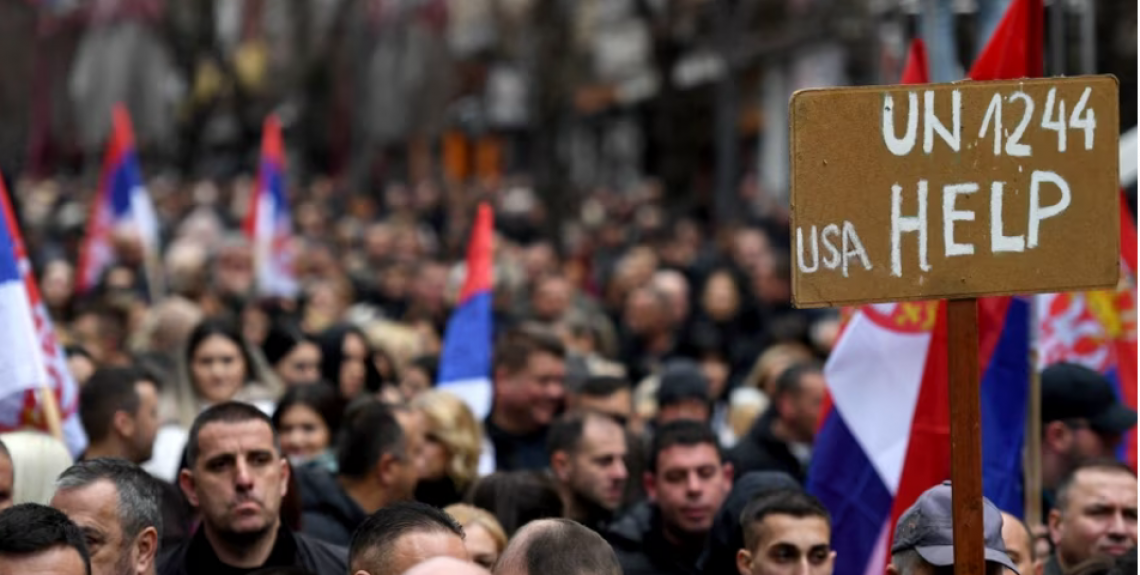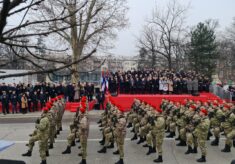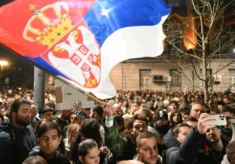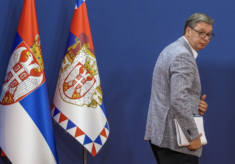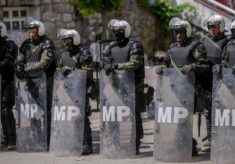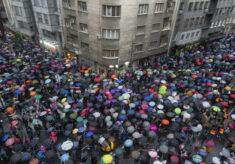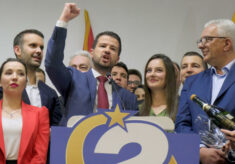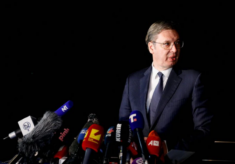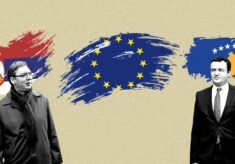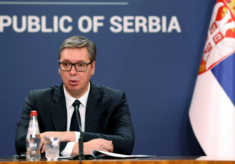Some of the international community’s concerns have materialized as Kosovo’s authorities decided to mandate the use of the euro as the sole currency in the entire former Serbian province. The move, announced in January, has triggered a fresh crisis between Belgrade and Pristina in February. While still not as explosive as previous disagreements, there exists the potential for a significant escalation, in particular in the north of Kosovo, mostly inhabited by Serbs, increasingly concerned about their future.
Despite not being a formal member of the eurozone or the European Union and being de facto under UN administration since 1999, Kosovo adopted the euro as its currency in 2002. However, the approximately 100-120.000-strong Serb community in Kosovo continues to use the dinar. This is because many members of the Serbian minority in Kosovo work for Serbian institutions, where their salaries, pensions, and other financial transactions are based on the dinar, but also because the dinar remains a ‘symbol’ of the links with Serbia and of the refusal to recognize Kosovo’s independence.
Framed as a strategy to combat corruption, money laundering, and the circulation of counterfeit money – yet more a significant step towards full sovereignty – Kosovo has decided to exclusively recognize the euro as its official currency for all commercial and financial transactions beginning this year. According to a regulation issued by the Central Bank of Kosovo in January, from February 1 onwards, “the euro will be the only currency allowed for use within the Republic of Kosovo.” Kosovo’s Prime Minister, Albin Kurti, clarified that “we are not prohibiting the possession of Serbian dinars” but the euro “will be the sole accepted means of payment.” He emphasized that the Serbian community in Kosovo would not face penalties for possessing the dinars. Moreover, a transition period has been established to ensure the Serbian population in Kosovo is well informed about the change and to address any technical challenges arising from the transition from the dinar to the euro.
Nonetheless, Serbia has responded strongly to the prohibition of the dinar. The National Bank of Serbia asked for the “immediately repeal of the discriminatory, illegal and outrageous measures.” Further, Serbian President Vucic remarked, “Serbia considers the removal of the dinar in Kosovo as completely unlawful.”
The crisis escalated further, with Serbia and Kosovo clashing over Kosovo’s ban of the Serbian dinar even at the UN Security Council. Serbia’s President Vucic argued the ban aims to expel Serbs by making their living conditions unbearable. In contrast, Kosovo’s PM Kurti denied claims of ethnic cleansing, stating the ban would block illegal cash flows to criminal groups. The international community, including the EU and the US, cautioned however that this action might worsen tensions in the volatile region, urging for dialogue and a significant postponement of the ban, which was not implemented by Pristina.
Meanwhile, the practical implications of the decision on the currency became evident in northern Kosovo by mid-February, with numerous Serbs facing serious difficulties in receiving salaries, pensions and subsidies paid in dinars. This issue arose because the few Serbian banks and Serbia post offices that remained operational in the north of Kosovo were no longer able of processing all transactions in the Serbian currency, as deliveries of dinars from Serbia were stopped or severely disturbed through the intervention of the Kosovo police and customs.
Hundreds of ethnic Serbs demonstrated in northern Kosovo on Monday against a new regulation targeting the Serbian dinar currency. They waved Serbian flags and held placards denouncing the new rule that makes the euro the only currency allowed in commercial transactions. The protest remains peaceful but the tension in the north is constantly rising.
The ongoing “dinar crisis” carries the risk of escalating into one of the gravest tensions between Serbia and Kosovo capable of rekindling violent conflicts in northern Kosovo. This comes especially after the turbulent events of 2023, a year marked by an armed confrontation between Serb gunmen and police in Banjska. Moreover, it threatens to trigger a significant social crisis in areas inhabited by Serbs, which have depended on Belgrade not only for political support but also for their economic sustenance. An attempt from the EU to negotiate a deal on the issue between Serbia and Kosovo failed at the end of February.
